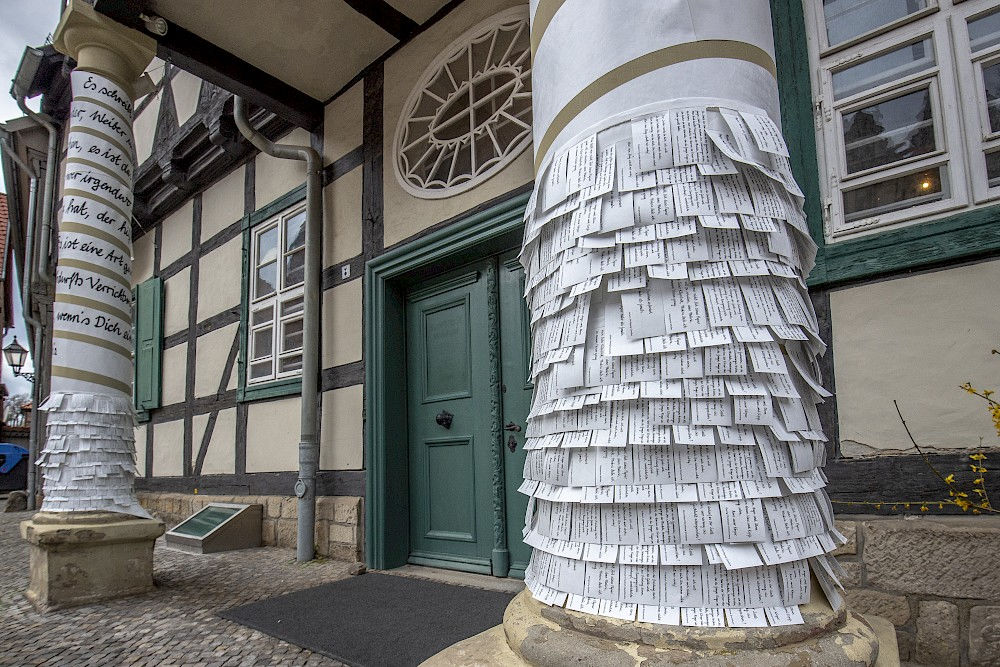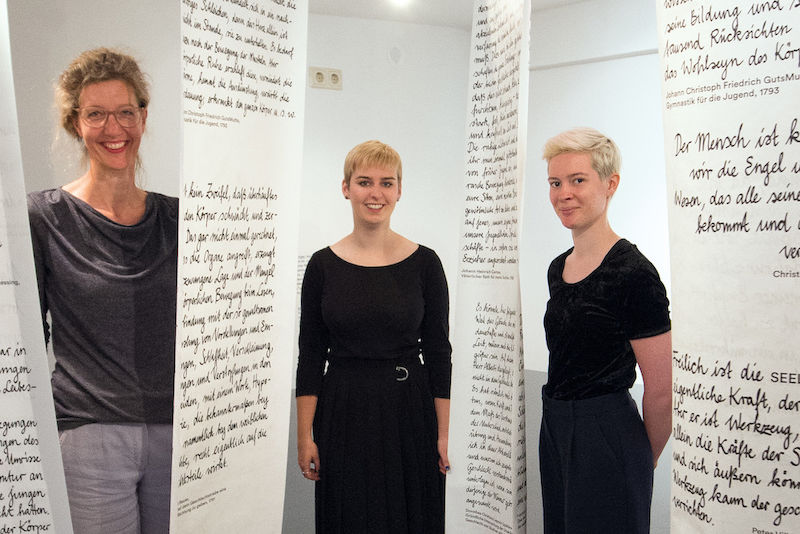A house full of scholars

Sharing your home with lots of people: the famous poet Friedrich Gottlieb Klopstock was used to this in his childhood. After all, he was the first of the Klopstock family’s 17 children. Today it is not relatives who live in his birthplace at Quedlinburg Schlossberg, but great writers, philosophers and scholars of the 18th century – the era in which Klopstock also lived and worked. They are commemorated in the new permanent exhibition “How the body speaks. Klopstock, Erxleben and GutsMuths in the paper age”. It opened in March 2019. It has been developed by seven students from MLU, Burg Giebichenstein University of Art and Design Halle and Merseburg University of Applied Sciences in close cooperation with the Quedlinburg Klopstock Association.
“There are many cultural heritage sites in Saxony-Anhalt, but they are often understaffed,” says Dr Christiane Holm, who led the project at the Institute for German Studies. “A difference can be made by bringing together our very good students with this heritage and giving them the opportunity, for example, to try out their own exhibitions during their studies.”
Klopstock and two other personalities have their own rooms in the house: the first German female medical doctor Dorothea Christiana Erxleben and the teacher Johann Christoph Friedrich GutsMuths. The three are not only connected by the era of Enlightenment and their common hometown of Quedlinburg; they also dealt with the human body, but from different perspectives. Erxleben wrote her doctoral thesis at the University of Halle on methods of treatment at that time, such as bloodletting, and criticised them. GutsMuths established school sport. And Klopstock set the language itself in motion with free rhythmic verses. “Our research was therefore primarily interdisciplinary – but that also makes it interesting,” says Holm.

In addition to Klopstock, Erxleben and GutsMuths, the students also dealt with the positions of other scholars, such as Johann Joachim Winckelmann, Sophie von La Roche and Immanuel Kant. They can be seen in quotations at various places in the exhibition and describe the body as a machine, a house or the interaction of juices. “Our approach was to combine the texts like building blocks so they can be read in a different order,” explains the academic.
The paper on which the texts are shown is very important. “In the Enlightenment, the material gained such importance that towards the end of the 18th century people spoke of the ‘paper age’,” says Holm. People expressed their thoughts and feelings not only by writing on paper, but also by kissing it or wearing it on their bodies.
In the exhibition, paper is not just seen in conventional formats such as book pages or letters; visitors can expect small, perforated notes with quotations at the entrance. Inside, visitors encounter papers suspended on linen, the words upon which only become visible upon closer inspection. Elsewhere there is an “Archive of expressions”: notes attached to the wall with phrases about the body, such as “It’s on the tip of my tongue” or “This gets under my skin” can be completed spontaneously. “If you want to explore the contents of the exhibition, you have to tear off the papers and, for example, hold them against the light or rewrite them,” says Holm. The many options for dealing with the texts are complemented by exhibits such as one of Klopstock’s locks of hair or a pair of 18th century ice skates. Klopstock is said to have developed the ideas for his poems while ice-skating. The students have also developed an accompanying book art publication and a media guide for the exhibition. The permanent exhibition is open annually from April to October, Wednesdays to Sundays from 10 am to 5 pm.
The project in Quedlinburg is complete but Christiane Holm continues to pursue the plan to inspire her students to transfer knowledge into society: “It's important to me that you don’t just move within an academic setting, but also get other people excited about our research topics.”
Dr Christiane Holm
Institute for German Studies
Telephone +49 345 55-23593
Mail: christiane.holm@germanistik.uni-halle.de
